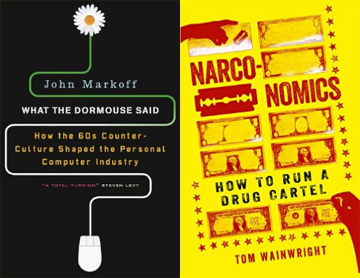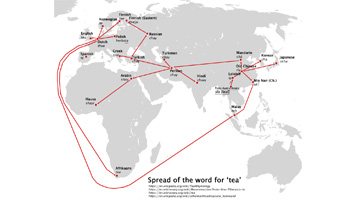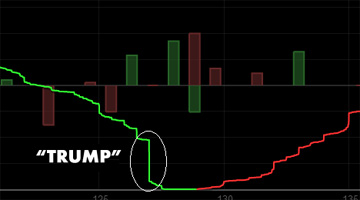|
| |
|
| |
|
|







|
|
TCHS 4O 2000 [4o's nonsense] alvinny [2] - csq - edchong jenming - joseph - law meepok - mingqi - pea pengkian [2] - qwergopot - woof xinghao - zhengyu HCJC 01S60 [understated sixzero] andy - edwin - jack jiaqi - peter - rex serena SAF 21SA khenghui - jiaming - jinrui [2] ritchie - vicknesh - zhenhao Others Lwei [2] - shaowei - website links - Alien Loves Predator BloggerSG Cute Overload! Cyanide and Happiness Daily Bunny Hamleto Hattrick Magic: The Gathering The Onion The Order of the Stick Perry Bible Fellowship PvP Online Soccernet Sluggy Freelance The Students' Sketchpad Talk Rock Talking Cock.com Tom the Dancing Bug Wikipedia Wulffmorgenthaler |
|
bert's blog v1.21 Powered by glolg Programmed with Perl 5.6.1 on Apache/1.3.27 (Red Hat Linux) best viewed at 1024 x 768 resolution on Internet Explorer 6.0+ or Mozilla Firefox 1.5+ entry views: 108 today's page views: 445 (19 mobile) all-time page views: 3247665 most viewed entry: 18739 views most commented entry: 14 comments number of entries: 1214 page created Sat Apr 19, 2025 13:20:21 |
|
- tagcloud - academics [70] art [8] changelog [49] current events [36] cute stuff [12] gaming [11] music [8] outings [16] philosophy [10] poetry [4] programming [15] rants [5] reviews [8] sport [37] travel [19] work [3] miscellaneous [75] |
|
- category tags - academics art changelog current events cute stuff gaming miscellaneous music outings philosophy poetry programming rants reviews sport travel work tags in total: 386 |

| ||
|
- reviews - Me: *stretching* Hello, world. Morning, hamster. Time to turn up the prescribed pep-up anthem, to face the new day! "...fifteen years have I been waiting to sit upon my throne" [Lyrics] ...whew, coffee can't compare to this, I tell ya. To contemplate the bright and glowing - but not the nuclear-irradiated sort, hopefully - future ahead. Anything important happened when I was asleep, Mr. Ham? Mr. Ham: *waves hamphone* They officially released Pokémon Go here! Just look at my growing Pikachu and Rattata army! Seriously, for all the hare-brained calls to ban it here, did anyone really think that they wouldn't have a revolt - or at least, exodus - on their hands? Anyway, after the orientation camp hijinks got busted, the powers that be might as well just roll with it, given the indirect potential for producing future national economic digits, no? Me: Speaking about that, our President has just denied his alleged remarks towards vocational education, although it would have wound down to a his-word-against-his situation; of course, one might consider the historical precedent about this, but given the circumstances, I suppose the statement given - sans the usual sue-happy response - was about as dignified as could be expected on this affair. Mr. Ham: Well, hackers are already ahead of everyone else, but at least the Indonesian authorities have arrested Team Rocket. Oh, and the first dead body has already been found... and wait, where's all the Bitcoin in my phone wallet?! Me: On that, Bitfinex is now leaning towards socializing all losses, probably because it's the only arrangement that would not further incentivize any particular set of customers to sue. By the way, IBM has just announced a "blockchain innovation center" here last month, so I suppose they at least recognize which way the wind's blowing. Then again, the other kind of financial innovation remains so much simpler - see China bankifying their firms to dodge debt troubles, which they probably learnt from the granddaddy of them all: Uncle Sam. Mr. Ham: They're still wrestling over their official stand on yuan devaluation, for one. Official growth remains steady - and as always, precisely spot-on - at 6.7%, which translates to somewhere between recession and depression according to Dr. Chang's guide, but whatever. It's telling that their big masterplan now appears to be copying Singapore in preparing for a doubling of their population - building housing for 3.4 billion, to be precise. Gee, what could go wrong? Me: Not only that, they're funding a US$42 billion land reclamation project off Johor. Johor! I mean, I can be impressed by the engineering feats behind it, and they're technically within their rights, but... it's not like Johor doesn't have huge tracts of cheap undeveloped shoreline available. And when you get to local rebalancings, and the interesting observation that recent CPF adjustments have been towards locking up more funds for longer periods... living fast sure is looking more rational with each passing day, I gotta say. Which brings us to our reviews of the day... Alt-Left, Hard High  (Sources: amazon.com, twice) We've reviewed pairs of books on occasion, when they make for meaningful counterpoints or contain shared material from different perspectives, and this is the case today with Markoff's What the Dormouse Said: How the Sixties Counterculture Shaped the Personal Computer Industry, and Wainwright's Narconomics: How to Run a Drug Cartel. The common theme here? Drugs, of course. To quickly set some background: about this January, for one, we considered the effects of weed against other substances such as alcohol, nicotine and caffeine, and noted that technically, any physiological harm posed was probably comparable (warning: please don't read this as a suggestion to do dumb shit here, like an unfortunate Metro scion - this is Singapore not China, some things very law-by-law one). Note that Narconomics also describes an attempt at the "addiction transfer" concept posited, by a New Zealander entrepreneur called Matt Bowden who introduced BZP as a "safer" alternative to meth, and who now has set eyes on an alcohol replacement, allowing inebriation without liver damage. And, since it'll be hanging over our heads otherwise - what's GOD-EMPEROR TRUMP's position on weed? Well, it isn't hard to guess, given that he's a man of strong principles: they can come in, but they have to come in legally. Oh, and remember his whole "Mexican wall" proposal? Guess where a ton of the hard stuff is coming over from, and the corruption and lawlessness that the flow has been funding back in Mexico? And guess what the US's strategy has been, for securing Jordan's borders? But, but, he's racist xenophobic REEEEEEE Ok, skipping that for awhile, let's consider an example that's unfolding much closer to home - newly-elected Philippines President Rodrigo Duterte - you know, the guy who commented on the gang-rape and murder of an Australian missionary by noting that he should have been first, and who described Pope Francis as the "son of a whore" (wait, I thought the Philippines was kinda Catholic?) - has basically declared open season on drugs in his country. And by that, he meant, "shoot anyone who has as much as touched drugs". Makes GOD-EMPEROR TRUMP sound downright benign, eh?  A Pietà for our time (Source: inquirer.net) As shock-and-awe tactics went, it was indeed effective, as the deaths of "a few hundred" small-time pushers and addicts has driven tens of thousands of them to the police for fear of their own safety... with the teeny problem that many of the vigilante killings were likely random (further, they don't even bother planting drugs, like the American police do - a cardboard sign suffices). While that's one thing, Duterte has just named over a hundred big shots, including top judges, cops and officials. Hope he's confident in his bodyguard detail... But let's depart from unhappy happenings for a moment, and begin with the reviews proper. As it so happens, Dormouse's other major theme is one of my professional and personal interests: artificial intelligence. As glossed over last October, A.I. and, ahem, mind-altering chemicals go back a long way - it is a matter of record that the first known e-commerce transaction was between Stanford A.I. Lab (SAIL) students and their fellows at MIT over ARPAnet about 1971, and involved "an undetermined amount of marijuana". And it might even have been within their remit; when one hears about A.I. now, one would (if enough of a dilettante) probably associate it with intrinsically-mathematical topics such as neural networks, support vector machines, decision graphs and trees, various statistical frameworks, etc. However, in a broader sense, A.I. can be recognized to admit another branch - rather than imitate and replace humans, it could also "extend and empower" them... which is where Douglas Engelbart's Augment project enters the picture. If Dormouse can be said to follow one particular character, it would have to be Engelbart. After growing up on a farm in Oregon, he was posted to the Philippines during the Second World War, and came across a stack of magazines while awaiting discharge following V-J Day. Browsing through, he was inspired by Vannevar Bush's proto-hypertext Memex proposal (to think, how different the world could have been, had they stocked the other kind of popular magazine) Engelbart completed the degree in electrical engineering that he had put on hold, and hung out at Stanford's libraries while holding down a pay-the-bills engineer job. He was twenty-five when he realised that he had no mission in life, and it was then that he envisaged his conception of the information age - one could sit before a symbol-filled screen, and through it, access and manipulate the sum total of human knowledge.  ...which turned out to cumulate in 4chan (Source: knowyourmeme.com) There were a bunch of twist and turns involved, definitely, as Engelbart set down roots at Stanford Research Institute (now SRI International), and assembled the grants and talent he required to make his vision a reality. In 1968, he would give the "Mother of all Demos", which was basically science fiction come alive: the GUI, the mouse, hypertext, active editing, the beginnings of ARPAnet... it was all there. At the same time, there was also exciting progress on more orthodox A.I. objectives, perhaps best represented by John McCarthy, who had coined the very term. The period about 1963-1969 would be remembered as the first "golden age" of A.I., before expectations and hype overran fundamentals (in large part, compute power; we'll expand on this in the future) It may be instructive to note that Engelbart's victory was not quite total - despite the overwhelming success of his seminal demo, take-up was generally slow, and the direction of his Augment Group would shift against his will. About six years later, the tech would be hocked off, after being passed over by Xerox (Engelbart's first backers, who reportedly were being excited about e-mail... seven years after Engelbart's group had started using it); as Bushnell (the Atari founder) succeeded over Pitts' more polished - and expensive - games, it is a sad fact that quality doesn't always pay (more recently confirmed by Zynga and other mobile app producers) Still, Engelbart probably wouldn't have been too disappointed at how it all turned out. Perhaps the true birth of the World Wide Web would take two more decades to arrive, but as Big Dreams went, his had certainly come true. That said, while a lot of Dormouse centers around Engelbart and McCarthy, and the various departments of Stanford and MIT that they and the early hacker community were associated with, this comprises but maybe half of the book's subject matter - recall, there's also the "Sixties counter-culture" bit. It was a time of post-war growth, of optimism, of experimentation. The horrors of Vietnam and the conflicts of the Civil Rights movement had yet to truly hit home, and the people were in the mood for some free love and spiritualism. It was a time of psychedelics. Of LSD. ...D'où est d'où est l'âme/Qui donc a inventé le code... As with A.I., there were a bunch of developments in these respects around Silicon Valley. Markoff describes the career of one Al Hubbard, who brought psychedelics to many of the Valley's pioneering engineers (interestingly, his LSD experiments had the blessing of the Canadian arm of the Catholic church). In particular, its purported creativity-enhancing possibilities were prized by the inventors and artists of the area, with Nobel laureate Kary Mullis citing it as "more important than any courses he ever took". [N.B. This is just a book review and does not represent any endorsement of, or condonation of, said activities, hor] Engelbart himself was one of the many ready volunteers in search of enhanced innovation, and while his maiden experience resulted in catatonia, he was sufficiently impressed to schedule a second meeting with eight other computer researchers, and claimed improved creativity levels from the experience. However, official investigations into LSD would be halted by the FDA in 1966, though it had by then filtered out of the Cali bohemian scene, and into the wider world. Just to reiterate here: drugs are bad, kids. Or more precisely, many illegal drugs are very bad for you, and it's better to be safe than sorry (but, nobody's overdosed and died with weed, as compared to alcohol, just sayin'). Those photos of meth addicts, cokeheads and krokodil users ain't faked or pretty, people, and this is all before we consider the horrific abuse and violence associated with the industry. However, ridding this scourge has been anything but easy, which is what Wainwright's Narconomics explores. There's Duterte's blunt-trauma approach, of course, and then there's Wainwright's reasoning - from economics. Rather than trying to outgun and out-atrocity the druglords - where, let's face it, they have the advantage - why not remove their incentives?  [N.B. Diagram's about the etymology of "tea" actually, but trade is trade; the ultimate roots are Hokkien teh (over the seas), and Mandarin cha (over land)] (Source: imgur.com) Anyway, like a past Freakonomics contributor, Wainwright found himself immersed in the drug scene for his research. For him, it began with a The Economist article in 2012, but he soon took to jetting all over the globe - and trawling the Dark Web - in search of answers. It is clear from the outset that the drug industry is one with humongous markups at each step - one of Wainwright's first observations is that there is almost no relation between the production price, and the final consumer "street price", of typical drugs. Using cocaine as a case study, he estimates that a kilogram of pure coke in Los Angeles would be about US$122000 after typical dilution is taken into account, and that this would require about 350kg of dried coca leaves... which costs less than US$400 from its source regions in Bolivia. The obvious argument then follows: while there have been efforts to effectively increase the costs of coca leaf production in South America, whether by stepping up detection and crop eradication programs, or by offering alternative jobs and corn subsidies, any realistic outcomes would represent an insignificant blip to the cartels' profit margins. For example, if (expensive) combined efforts managed to triple production costs to about US$1200 per kilogram of finished product, all that would happen would be that the eventual street price of coke would rise... from US$122 a gram, to US$123. Thus, Wainwright argues, from America's perspective, the "correct" and most cost-effective approach to strike at the distribution chain, would be further down - at the point where the drugs would cross the border, and also after that.  We will no longer surrender this nation to the false song of globalism [N.B. As also says the smartest eleven-year old I have had the pleasure of coming across in a long, long while, on the irrelevance of "a few bad words"] (Source: flickr.com) There's plenty of economic analysis to go around. For example, why do drug gangs such as the Sinaloa and Juárez - who have brutally murdered each others' members for years, mind - make truces and collude? Because oligopoly is usually more profitable, duh. Not only that, El Salvadorean gangs further require members to acquire full-body tattoos that declare their allegiance, mostly to prevent them from job-hopping to rivals (too bad, LinkedIn) They take their PR seriously too - as one can imagine that it would be very inconvenient, and thus expensive, if the local populace were driven to actively resist the cartels, they in practice offer a mixture of carrot and stick. Brazen public display of opponents' corpses aside, they often also promote some semblance of order (generally along the lines of "no women and children involved, no extortion, no kidnappings"), while offering attractive remuneration (tellingly for grad students everywhere, one of the Zetas' ads emphasized that their employees need not resort to eating instant noodles), while indulging in very public acts of charity. The cartel bosses weren't immune to the temptations of cost-cutting either, and Wainwright reports their adoption of two well-known techniques: offshoring and franchising. Basically, within Central America, there remains a cost hierarchy, which mostly goes down from north to south (and which is why Mexico is deporting Hondurans themselves). As for franchising, the less civic-minded cartels have been known to "rent out" their name - and the associated dread - to various unassociated criminals and shopfronts. Wainwright does note that the interests of franchiser and franchisee are not always aligned, in that the franchiser takes a cut of gross sales, not profits, and thus they never lose out by accepting more franchisees, whereas existing franchisees will see their takings reduced by competitors. They do run the risk of idiot franchisees, though - some Zetas affiliates broke one of the cardinal unwritten rules of the Mexican cartels by killing an American agent in 2011, which brought some serious retaliation from combined US-Mexican forces upon them. And, before we get the impression that Narconomics doesn't overlap with Dormouse as much as Dormouse does Narconomics, consider:  Is that what they call it now? (Original source: reddit.com) Yep, large Bitcoin buywalls are now starting to get referred to as "Trumps"; it goes without saying that the cryptocurrency has found much of its early utility in the trade of, *cough* herbal remedies, as a recent kinda-surreal tale on the relevant subreddit reminds. Indeed, Wainwright devotes a whole chapter to Bitcoin and the Silk Road (repeat mention of the famous Stanford-MIT trade, of course), with his main takeaway being how friendly and comprehensive the customer service is, despite sellers likely being behind seven proxies. Wainwright explains this as being due to the value of reputation. Although sellers are anonymous, they are now competing transparently on price and product quality, and are in practice not going to operate at scale - and start making real money - until they have built up a track record. Thus, like normal eBay and Qoo10 retailers, they can get pretty concerned about not getting negative ratings. Amusingly, this extends to vendors of stolen credit card details, who will provide guarantees about, and insurance for, their validity. There's some interesting graph theory going on here too, as Wainwright uses the marriage market in 1430s Florence to demonstrate the decision process behind which great family to marry into/from - which carries over to the problem of which node in the drug distribution network to attack the most productively. In short, rather than the obvious approach of targeting those with "the most contacts (by PageRank algo or not)", it makes more sense to hit those with "access to exclusive contacts", who have no replacements as go-betweens... which happens to be the middlemen repackaging the wholesale goodies for street dealers, in most setups. And to conclude, Wainwright covers the increasingly-legal status of marijuana in the States, such as in Colorado's pot farms (much innovation), and nearly a thousand recreational marijuana dispensaries. While he acknowledges that there have been weed accidents (including inadvertent jumping off of balconies and shooting of guns, but it's not like alcohol doesn't do that either), the math seems to be on legalization drawing money and power away from the cartels, though he doesn't discount weed farming eventually returning to Mexico, though under huge conglomerates, as with tobacco. Coming Down Me: ...and, the four major mistakes in the War On Drugs, according to Wainwright: focusing on supply, since the impact on profits are negligible, as seen; skimping on prisons and rehab, since it'll just result in recalcitrant criminals and further losses to society; not coordinating multi-national efforts, as this often just shuffles cartel activity between countries; and finally, confusing prohibition with control... which one might have expected that the US would have experience with. Mr. Ham: *holding bottle* And not a moment too soon. Have a drink on me? Me: Nah, it would be against the code of the dedicated; for us, the collection of TRUMP devotional icons is more than enough. And, it's #Pogback! That's enough of a high to last for days! Hmm, come to think of it, with all the things that Stanford and MIT are involved with in the crypto space right now; let's just say that I wouldn't be overly shocked if at least some of them were in it for, ahem, the side benefits... Mr. Ham: Suit yourself. It was the special stuff, too. *quaffs entire bottle* Me: Wait, don't tell me... Mr. Ham: Wheeeeeee! I'm flying! ...we have the best trips, I tell you. Really quite amazing trips. The best. We have the greatest trips, people, the very best, they really are. Next: Into The Mood
|
|||||||
 Copyright © 2006-2025 GLYS. All Rights Reserved. |
|||||||